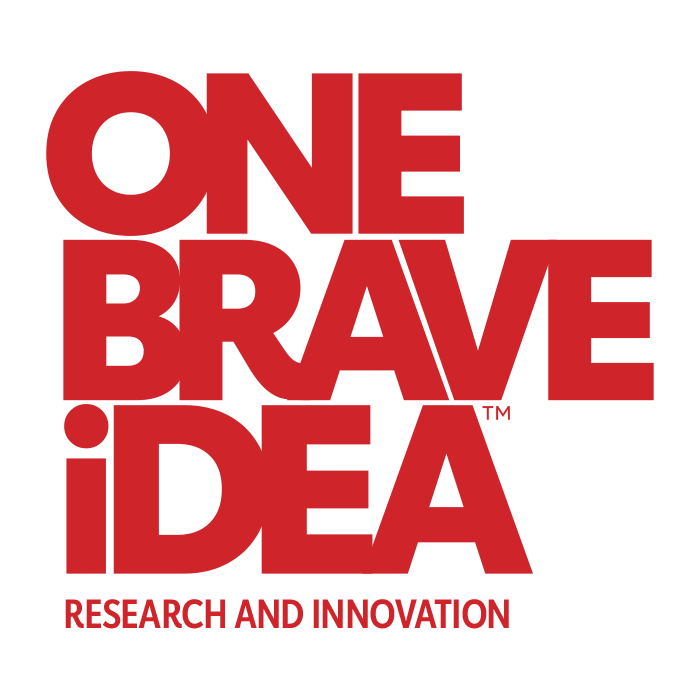Dr. Calum MacRae, Vice Chair for Scientific Innovation in the Department of Medicine at Brigham and Women’s Hospital in Boston, and his world-class team were selected as the recipients of the One Brave Idea research award.
The One Brave Idea Team comprises a group of leading scientists from multiple disciplines working together to understand the earliest stages of coronary heart disease (CHD). They are exploring how CHD develops and how we can stop it from leading to heart attacks and strokes. Over the past several decades, we have learned a lot – but it’s not enough. Research has become too incremental, conducted by teams that were too narrow and lacking the powerhouse funding to bring together the best and brightest minds. Our team is changing that by pairing a unique model of science with a new funding approach and a never-before-seen level of cross-enterprise collaboration. In addition to major financial support, our funding organizations are providing expertise and additional in-kind resources, including access to the American Heart Association’s medical and scientific networks, Verily’s data analysis capabilities, AstraZeneca’s cardiovascular research data.
Dr. Calum MacRae, Vice Chair for Scientific Innovation in the Department of Medicine at Brigham and Women’s Hospital (BWH), and his world-class team were selected as the recipients of the One Brave Idea research award. The team is made up of investigators from a wide variety of disciplines, such as cardiology, data science, and engineering. Each has experience breaking down boundaries and working outside the constraints of traditional biomedical science. The team works out of the One Brave Idea Science Innovation Center in Boston to facilitate new techniques in a clinical context, where they have access to a national consortium of translational scientists, the engineering know-how of MIT, and the clinical device expertise of BWH’s Next Generation Phenotyping Center.
Our Mission & Vision
Our mission is to change how coronary heart disease is detected, prevented, and treated. One Brave Idea focuses on the earliest abnormalities in the development of coronary disease, developing new methods of quantifying cardiovascular health and disease, and identifying new biologic mechanisms that contribute to coronary disease. In addition to multidisciplinary science, One Brave Idea engages with patients in new ways, in an effort to break down traditional barriers between patient care, research, and their daily lives.
Our Approach
We want to understand what are the very earliest forms of coronary disease. We seek answers to questions such as: what is different about the people that end up having plaque buildup and those who don’t? We know that diabetes, hypertension, and cholesterol typically become abnormal decades after the CHD sets in, so we will investigate further upstream for approaches that can delay or prevent onset. We will also look for novel lifestyle and behavioral modifications, approaches that can be difference makers.
These are lofty goals, and they wouldn’t be possible without challenging current research funding paradigms and embracing new ways to do science. Our aim is to create a nimble, entrepreneurial structure, similar to that of a start-up company. Our investigators know they will likely come to dead ends. That’s ok. Every effort will provide meaningful information—even if the answer is to look somewhere else.

New ways to analyze data
Leveraging existing and novel datasets, we will analyze data in new ways to understand how our biology is affected by the environment. Taking another look at these datasets in ways that have not previously been feasible will allow us to define specific subsets of CHD and drive toward new biological understanding of how CHD arises and progresses.

New diagnostics
Through a combination of existing technology or devices and the development of new tools, we aim to monitor the whole body at a molecular and cellular level to understand how the disease first emerges. Imagine if something worn on your shirt or sensors in your car could help uncover how CHD arises—that’s the future we are creating.

New prevention and treatment strategies
All our efforts have one thing in mind: the patient. Through clinical studies and access to an evolving ecosystem of patient-centered research, we will rapidly translate our findings to new prevention and treatment strategies.
Heart Disease Does Not Discriminate
Woman or man, adult or child, rich or poor, American or otherwise: heart disease does not discriminate. It’s the No. 1 killer in the United States and around the world. But rather than focusing on the endpoint of death, our team is going back to the roots of the disease. We want to find out when and how it starts—and make sure it doesn’t.
The One Brave Idea team is developing biomarkers for coronary heart disease (CHD) or atherosclerosis that can define the earliest stages of the disease—such as young adulthood, or even childhood. These transformational technologies will lead us to new therapies and novel strategies as we comprehend the trajectory of atherosclerosis from before birth through adulthood, and, ultimately, to our primary objective: the maintenance of wellness for every individual.
